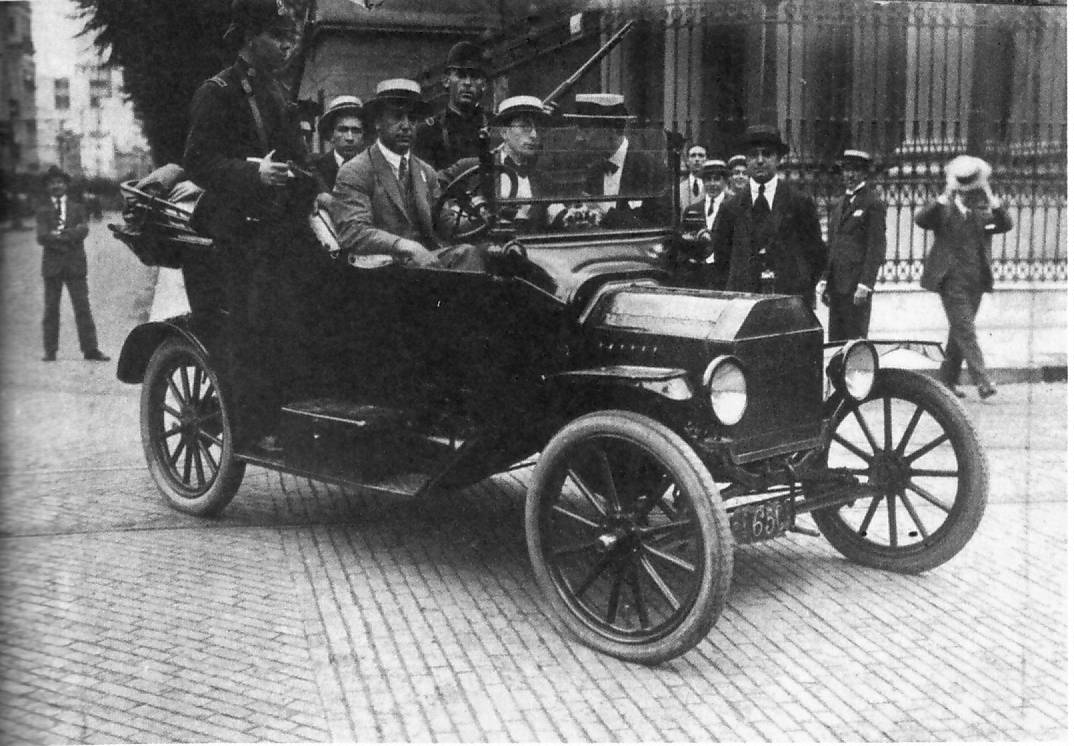Argentine Patriotic League on:
[Wikipedia]
[Google]
[Amazon]
 The Argentine Patriotic League ( es, Liga Patriótica Argentina) was a '' Nacionalista'' paramilitary group, officially created in
The Argentine Patriotic League ( es, Liga Patriótica Argentina) was a '' Nacionalista'' paramilitary group, officially created in
of Luis María Caterina. ''La liga patriótica Argentina: Un grupo de presión frente a las convulsiones sociales de la década del veinte''. Buenos Aires: Corregidor. 1995. Pp. 333 (in the ''
reseña
 The Argentine Patriotic League ( es, Liga Patriótica Argentina) was a '' Nacionalista'' paramilitary group, officially created in
The Argentine Patriotic League ( es, Liga Patriótica Argentina) was a '' Nacionalista'' paramilitary group, officially created in Buenos Aires
Buenos Aires ( or ; ), officially the Autonomous City of Buenos Aires ( es, link=no, Ciudad Autónoma de Buenos Aires), is the capital and primate city of Argentina. The city is located on the western shore of the Río de la Plata, on South ...
on January 16, 1919, during the Tragic week events. Presided over by Manuel Carlés, a professor at the Military College and the '' Escuela Superior de Guerra'', it also counted among its members the deputy Santiago G. O'Farrell (1861-1926). The League was merged into the Argentine Civic Legion
The Nationalist Liberation Alliance (Spanish: ''Alianza Libertadora Nacionalista'', ALN), originally known as the Argentine Civic Legion (''Legión Cívica Argentina'', LCA) from 1931 to 1937,Rodney P. Carlisle (general editor). ''The Encyclopedia ...
in 1931.Patrick Frank. ''Los Artistas del Pueblo: prints and workers' culture in Buenos Aires, 1917-1935''. University of New Mexico Press, 2006. Pp. 206. The Argentine Patriotic League formed part of a larger movement of patriotic leagues active in Chile and Argentina during the early 20th century.
History
Composed of wealthy youth, the League assaulted workers' neighborhoods, including theJewish
Jews ( he, יְהוּדִים, , ) or Jewish people are an ethnoreligious group and nation originating from the Israelites Israelite origins and kingdom: "The first act in the long drama of Jewish history is the age of the Israelites""The ...
Once neighborhood of Buenos Aires. It received military training from members of the Argentine Armed Forces, was subsidized by important members of the oligarchy
Oligarchy (; ) is a conceptual form of power structure in which power rests with a small number of people. These people may or may not be distinguished by one or several characteristics, such as nobility, fame, wealth, education, or corporate, r ...
, and supported by the Church
Church may refer to:
Religion
* Church (building), a building for Christian religious activities
* Church (congregation), a local congregation of a Christian denomination
* Church service, a formalized period of Christian communal worship
* C ...
. The League worked hand-in-hand with the Bonaerense police forces in the repression of social movements. Some of its members were also members of the Radical Party.
It quickly extended itself throughout Argentina
Argentina (), officially the Argentine Republic ( es, link=no, República Argentina), is a country in the southern half of South America. Argentina covers an area of , making it the second-largest country in South America after Brazil, th ...
, on a nationalist, xenophobic
Xenophobia () is the fear or dislike of anything which is perceived as being foreign or strange. It is an expression of perceived conflict between an in-group and out-group and may manifest in suspicion by the one of the other's activities, a ...
, anti-Communist and anti-Semitic program. They attacked in particular Catalans (accused of being anarchists
Anarchism is a political philosophy and movement that is skeptical of all justifications for authority and seeks to abolish the institutions it claims maintain unnecessary coercion and hierarchy, typically including, though not necessari ...
) and Jews
Jews ( he, יְהוּדִים, , ) or Jewish people are an ethnoreligious group and nation originating from the Israelites Israelite origins and kingdom: "The first act in the long drama of Jewish history is the age of the Israelites""The ...
(accused of being Bolsheviks
The Bolsheviks (russian: Большевики́, from большинство́ ''bol'shinstvó'', 'majority'),; derived from ''bol'shinstvó'' (большинство́), "majority", literally meaning "one of the majority". also known in English ...
).Book reviewof Luis María Caterina. ''La liga patriótica Argentina: Un grupo de presión frente a las convulsiones sociales de la década del veinte''. Buenos Aires: Corregidor. 1995. Pp. 333 (in the ''
American Historical Review
''The American Historical Review'' is a quarterly academic history journal and the official publication of the American Historical Association. It targets readers interested in all periods and facets of history and has often been described as the ...
''
At its height in the early 1920s, the League's so-called brigades contained as many as 300,000 members throughout the country. The League counted with the official support of the admiral and Minister of Marine Manuel Domecq García.
The League participated to the events known as '' Patagonia rebelde'' or ''Patagonia Trágica'' (1921-1922), in Río Gallegos, during which 1,500 workers on strike were assassinated.
It also participated to José Félix Uriburu
Lieutenant General José Félix Benito Uriburu y Uriburu (20 July 186829 April 1932) was the President of the Provisional Government of Argentina, ousting the successor to President Hipólito Yrigoyen by means of a military coup and declaring ...
's 1930 military coup, which initiated the Infamous Decade
The Infamous Decade () was a period in Argentinian history that began with the 1930 coup d'état against President Hipólito Yrigoyen. This decade was marked on one hand by significant rural exodus, with many small rural landowners ruined by ...
.
References
Bibliography
* Caterina, Luis María. 1995. ''La Liga Patriótica Argentina. Un grupo de presión frente a las convulsiones sociales de la década del '20''. Buenos Aires, Editorial Corregidor. {{ISBN, 978-950-05-0839-1}reseña
See also
* Tacuara Nationalist Movement Defunct political parties in Argentina Anti-communist organizations Anti-communism in Argentina Antisemitism in Argentina Far-right politics in Argentina Fascist parties Political parties established in 1919 1919 establishments in Argentina Political parties disestablished in 1931 1931 disestablishments in Argentina